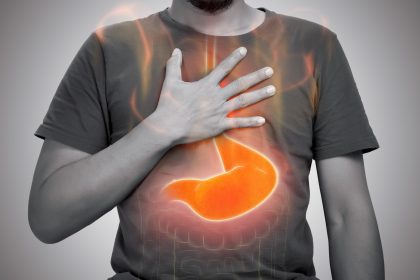When you think about health care, regular bowel movements might not be the first thing that comes to mind. However, maintaining a consistent digestive rhythm is crucial for overall well-being. Many people suffer in silence, experiencing discomfort and a range of health issues due to irregular bowel movements. Ignoring this essential bodily function can lead to several complications that significantly affect your quality of life. Here are five complications that can arise from not having regular bowel movements.
1. Chronic constipation
Chronic constipation is one of the most common complications of irregular bowel movements. When the digestive system doesn’t function properly, stool can become hard and difficult to pass. This condition can cause severe discomfort, bloating and pain. For many, this isn’t just a temporary inconvenience but a persistent issue that affects daily activities.
Imagine feeling bloated and uncomfortable every day. The struggle to have a normal bowel movement can become an exhausting cycle. Over time, chronic constipation can lead to the development of other severe health problems. Unfortunately, many people are hesitant to discuss this issue, suffering in silence due to embarrassment. But it’s important to understand that regular bowel movements are a vital part of a healthy lifestyle.
2. Hemorrhoids
Another painful consequence of irregular bowel movements is the development of hemorrhoids. Hemorrhoids are swollen blood vessels in the lower rectum and anus — often caused by straining during bowel movements. When bowel movements are infrequent, the stool becomes harder, and passing it requires more effort, leading to increased pressure on the veins in the rectal area.
The discomfort of hemorrhoids can range from mild itching and irritation to severe pain and bleeding. This condition can significantly impact a person’s quality of life, making even simple tasks like sitting or walking uncomfortable. In severe cases, hemorrhoids may require surgical intervention. Preventing hemorrhoids starts with maintaining regular bowel movements to minimize the need for straining.
3. Fecal impaction
One of the more severe complications of irregular bowel movements is fecal impaction. This condition occurs when a large mass of stool becomes stuck in the colon or rectum, preventing the passage of normal bowel movements. Fecal impaction is a medical emergency that can lead to severe pain, nausea, vomiting and even bowel perforation if left untreated.
The risk of fecal impaction increases with age — especially in individuals with a history of chronic constipation. The fear of pain during bowel movements may lead some to avoid going to the bathroom, worsening the problem. In extreme cases, medical intervention is required to remove the impacted stool, which can be a distressing and uncomfortable process. Regular bowel movements are key to avoiding such serious complications and ensuring a healthier digestive system.
4. Digestive disorders
Irregular bowel movements can have a ripple effect on the entire digestive system, leading to other digestive disorders. When stool remains in the colon for an extended period, the body continues to absorb water from it, making it dry and hard to pass. This can contribute to a condition known as irritable bowel syndrome (IBS) — which is characterized by symptoms like abdominal pain, bloating, gas, and changes in bowel habits.
Additionally, the accumulation of toxins in the colon due to infrequent bowel movements can lead to an imbalance in gut bacteria. A healthy gut is essential for overall well-being, as it plays a crucial role in immune function, nutrient absorption and mental health. Disruptions in this balance can contribute to a range of health issues, from weakened immunity to mood disorders. Taking steps to maintain regular bowel movements is vital for the overall health of the digestive system and beyond.
5. Increased risk of colorectal cancer
While not having regular bowel movements doesn’t directly cause colorectal cancer, chronic constipation is associated with an increased risk of developing this disease. Prolonged exposure of the colon’s lining to waste products and toxins can contribute to the development of abnormal cells. Additionally, straining during bowel movements can lead to the formation of polyps — some of which can become cancerous over time.
Colorectal cancer is one of the most common types of cancer, and early detection is crucial for successful treatment. Maintaining regular bowel movements can help reduce the risk of developing this condition by ensuring that waste products are promptly eliminated from the body. If you notice persistent changes in your bowel habits, it’s essential to seek medical advice to rule out serious underlying conditions.
The emotional toll of irregular bowel movements
Beyond the physical complications, not having regular bowel movements can also take a toll on your mental and emotional health. The constant discomfort, fear of pain, and anxiety around bowel habits can lead to a diminished quality of life. It’s not uncommon for individuals to avoid social situations or physical activities due to the fear of needing a bathroom urgently.
This sense of embarrassment and isolation can contribute to stress, which, ironically, can further exacerbate digestive problems. Addressing irregular bowel movements isn’t just about physical health — it’s also about reclaiming your comfort, confidence and peace of mind. Recognizing the importance of this bodily function can empower you to take proactive steps toward better health.
Maintaining regular bowel movements
To avoid these complications, it’s essential to adopt lifestyle habits that promote regular bowel movements. Here are some practical tips:
- Dietary fiber: Incorporate high-fiber foods such as fruits, vegetables, whole grains and legumes into your diet. Fiber adds bulk to the stool and helps it pass more easily through the digestive system.
- Hydration: Drink plenty of water throughout the day. Proper hydration softens the stool, making it easier to pass and reducing the risk of constipation.
- Physical activity: Regular exercise can stimulate intestinal activity, promoting more regular bowel movements.
- Regular routine: Establish a consistent bathroom routine. Listen to your body’s signals and avoid ignoring the urge to have a bowel movement.
- Limit processed foods: Processed foods can be low in fiber and high in fat, contributing to constipation. Opt for a diet rich in whole, unprocessed foods.
Prioritizing digestive health
Ignoring irregular bowel movements can lead to a host of complications, both physical and emotional. Chronic constipation, hemorrhoids, fecal impaction, digestive disorders and an increased risk of colorectal cancer are serious concerns that should not be overlooked. Your digestive health is a key component of your overall well-being, and maintaining regular bowel movements is a simple yet crucial aspect of self-care.
By adopting healthy habits such as a fiber-rich diet, staying hydrated and engaging in regular physical activity, you can support a healthier digestive system and prevent these complications. Remember, addressing digestive issues is not something to be embarrassed about — it’s an important step toward living a healthier, more comfortable life.
If you’re experiencing persistent irregular bowel movements, it’s essential to consult a health care professional to rule out underlying conditions and receive appropriate guidance. Taking control of your digestive health today can lead to a better quality of life tomorrow.
This story was created using AI technology.













